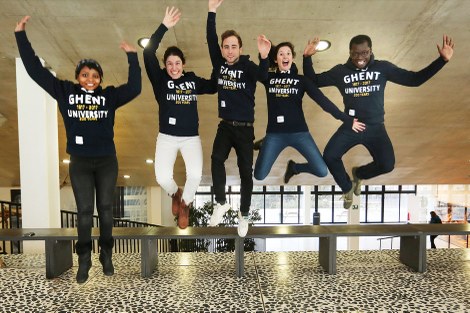Incoming international students

Our regular courses in Dutch can be found here (Bachelor's programme in History) and here (Master's programme in History).
Of course, we realize that mastering Dutch in a few months’ time is no mean feat. For many students it may be unrealistic. For that reason we also offer a study programme in English. Students wishing to pursue this can do so in two ways (or a combination of both):
- Many of our Dutch-language courses accommodate international students by offering special arrangements for foreign language speakers. These may include: (1) alternative essay-based assessment; (2) alternative English-language textbooks; (3) individual tutoring sessions with teaching staff.
A list of these courses can be found here. Dutch courses offering foreign-language facilities are marked [nl] there. For more information on the specific facilities offered in each course, we advise you to consult the individual course specifications in the aforementioned course catalogue by simply clicking on the title of the course. - The History Department has also been strongly involved in the development of a number of English-language course clusters, specifically aimed at incoming foreign students. These course clusters are organized around different themes. Needless to say, you are free to choose courses in one cluster or across several of them.
The following course clusters are currently offered:
Cultures and Languages in Context
Global Studies and World Societies
Medieval Studies and Auxiliary Sciences
For more information on these or other courses, please use search the course catalogue.